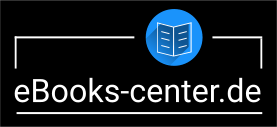Blockchain, Fintech, and Islamic Finance (eBook, EPUB)
Chapter 1: Introduction
1.1. Rationale
1.1.1. Digital Transformation and Development
1.1.2. Change in Consumer Behaviour
1.1.3. Financial Crisis and Enforcement of Regulations
1.2. Objectives
1.3. Method
1.4. Contribution
1.5. Chapter Organization
Chapter 2: Fintech Definition, History and Global Landscape
2.1. Introduction
2.2. Definition and Concept of Fintech
2.3. Evolution of Fintech
2.3.1. Fintech 1.0
2.3.2. Fintech 2.0
2.3.3. Fintech 3.0/3.5
2.4. Global Landscape of Fintech
2.4.1. Fintech Investment
2.4.2. Fintech in Major Regions
2.4.2.1. Europe
2.4.2.2. USA
2.4.2.3. Asia
2.4.2.4. Africa
CHAPTER 3: Importance of Fintech
3.1. Introduction
3.2. Fintech within Financial services Industry perspective
3.2.1. Payments Industry
3.2.2. Crowdfunding and P2P Lending
3.3.3. Neo-banking
3.3.4. Asset under Management
3.3.5. InsurTech
3.3. Fintech within Technological perspective
3.3.1. Blockchain and Its applications
3.3.1.1. Definition, concept and types
3.3.1.2. Financial industry Impacts
3.3.2. Cloud Computing
3.3.3. Big Data Analytics
3.3.4. Internet of Things
3.3.5. Robo Advisors
3.3.6. Artificial Intelligence
CHAPTER 4: Emergence of Islamic Fintech and Developments
4.1. Introduction
4.1.1. What is Islamic Fintech?
4.1.2. Line of Difference
4.1.3. Match between Islamic Finance and Fintech
4.1.4. Why Islamic Fintech lag Behind in the Global Map of Fintech?
4.2. Islamic Fintech Developments Around the Globe
4.2.1. Islamic Fintech
4.2.1.1 Islamic Crowdfunding
4.2.1.2. Islamic Fintech deploying Blockchain
4.2.1.3. Islamic Robo Advisors
4.2.1.3. Others
4.2.2. Islamic Fintech Alliance
4.2.3. Worlds First Islamic Endowment Crowdfunding Platform
4.3. Islamic Countries Initiatives for Islamic Fintech
4.4.1. Malaysia
4.4.2. Brunei Darussalam
4.4.3. Dubai
4.4.4. Bahrain
4.4. Impediments for Islamic Fintech
CHAPTER 5: The Blockchain and The Islamic Digital Economy
5.1. Introduction
5.1.1. Investments in the Blockchain
5.1.2. Trends of the Sharing Economy and the Internet of Things (IoT) Era
5.2. Trust in the New Sharing Economy
5.2.1. Trust and Reciprocity in the Economy
5.2.2. Trust and Trustworthiness (Reciprocity) in Islam
5.3. What is the Blockchain?
5.3.1. Blockchain as Currency
5.3.2. Blockchain as Public Registries
5.3.3. Blockchain as Smart Contracts
5.3.4. Blockchain as Clearing and Settlement of Securities Transactions
CHAPTER 6: Expanded Use Cases of the Blockchain
6.1. Smart Contracts in Islamic Transactions
6.1.1. How Does a Smart Contract Work?
6.1.2. Automation and Enforceability
6.1.3. Benefits and Evolution of Blockchain-based Smart Contracts
6.1.4. Applications of Smart Contracts
6.1.4.1. Capital Markets and Investment Banking
6.1.4.2. Commercial and Retail Banking
6.1.4.3. Takaful
6.2. Islamic Trade Financing
6.2.1. Blockchain-based Trade Finance
6.2.2. Enablers to Blockchain-based Trade Financing
6.2.2.1. Blockchain-based Smart Contracts
6.2.2.2. Instant Payment Structures
6.2.3. Current Challenges
6.3. Takaful (Islamic Insurance) on the Blockchain
6.4. Blockchain-based Islamic Capital Markets
6.5. LegalTech and the Deployment of Smart Contracts for Faraid, Nuzriah and
Wasiyyah
6.6. Media Rights, Intellectual Property and Trademark Protection
CHAPTER 7: Evolution of the Blockchain
7.1. Introduction
7.1.1. Transnational Justice Applications for the Economy
7.1.2. Coordination and Efficiency in Markets through Consensus-building
7.1.3. Pragmatic Approach to Blockchain Implementation
7.2. Overcoming Limitations of the Blockchain
7.2.1. Technical Challenges
7.2.2. Business Challenges
7.2.3. Government Regulatory Challenges
7.2.4. Privacy Challenges
CHAPTER 8: Recommended Response for Islamic Financial Institutions
8.1. Introduction
8.2. Important Success Factors in this era of Fintech and Digitization
8.2.1. Better Customer Experience with Customer-centricity
8.2.2. Agility and Scalability
8.2.3. Innovation and Incubation
8.2.4. Cyber-security Management
8.3. Collaboration Model for IFIs
8.3.1. Tech is a Huge Enabler for any Islamic Institution
8.3.2. Collaboration is Better than Competition
8.3.3. Open Innovation
8.4. Summary of the Chapter
CHAPTER 9: Conclusion
9.1. Introduction
9.2. Potential of Shariatech and Roadmap Ahead
9.3. Recommendations for Future Development
ePUB Typ
Reflowable ePUB: Sind dynamische eBooks, die auf unterschiedlichen Geräten und Bildschirmgrößen lesbar sind. Diese Art von ePUB passt sich an die Größe und Auflösung des Bildschirms an, auf dem sie gelesen wird. Der Text wird automatisch umgebrochen, um eine optimale Lesbarkeit zu gewährleisten. Reflowable ePUBs eignen sich am besten für Texte, die keine festgelegte Struktur oder ein festes Layout erfordern, wie z. B. Romane oder Bücher mit hauptsächlich textbasierten Inhalten.
Fixed Layout ePUB: Sind E-Books mit einem festen Layout, das auf dem Seitenlayout eines gedruckten Buches basiert. Diese Art von ePUB eignet sich am besten für eBooks, die Bilder, Grafiken oder Tabellen enthalten, die in einem bestimmten Layout angezeigt werden müssen. Fixed Layout ePUBs sind ideal für Comics, Kinderbücher, Kochbücher und Bildbände.
Interactive ePUB: Sind eBooks, die über interaktive Elemente wie Audio, Video, Animationen, Hyperlinks und andere Multimedia-Elemente verfügen. Diese Art von ePUBs ist am besten für Bildungsbücher, Lehrbücher und andere Lernmaterialien geeignet, die interaktive Elemente enthalten, um das Lernen zu verbessern. Es kann sein, dass einige Lesegeräte oder eBook-Reader möglicherweise nicht alle Arten von ePUB-Dateien unterstützen.
Schlagwörter zu:
Blockchain, Fintech, and Islamic Finance von Hazik Mohamed mit der ISBN: 9781547400980
BUS004000 BUSINESS & ECONOMICS / Banks & Banking; BUS027000 BUSINESS & ECONOMICS / Finance / General; BUS045000 BUSINESS & ECONOMICS / Money & Monetary Policy; Blockchain; Fintech; Islamic Economics; Islamic Finance; Shari'ah, eBooks-Center
For legal reasons, the eBook download can only be delivered in countries with a billing address as follow
Der eBook-Download kann aus rechtlichen Gründen nur in Ländern mit den folgenden Rechnungsadressen ausgeliefert werden:
BG BE AT EE DK CZ CH DE CY HU HR GR FR FI ES LT LI IT IE NL MT LU LV SE RO PT PL SK SI
Kunden Rezensionen zu Blockchain, Fintech, and Islamic Finance von Hazik Mohamed | eBook
Kunden, die: "Blockchain, Fintech, and Islamic Finance" (EPUB) von Hazik Mohamed als eBook gekauft haben,
interessierten sich auch für die folgenden eBooks:

